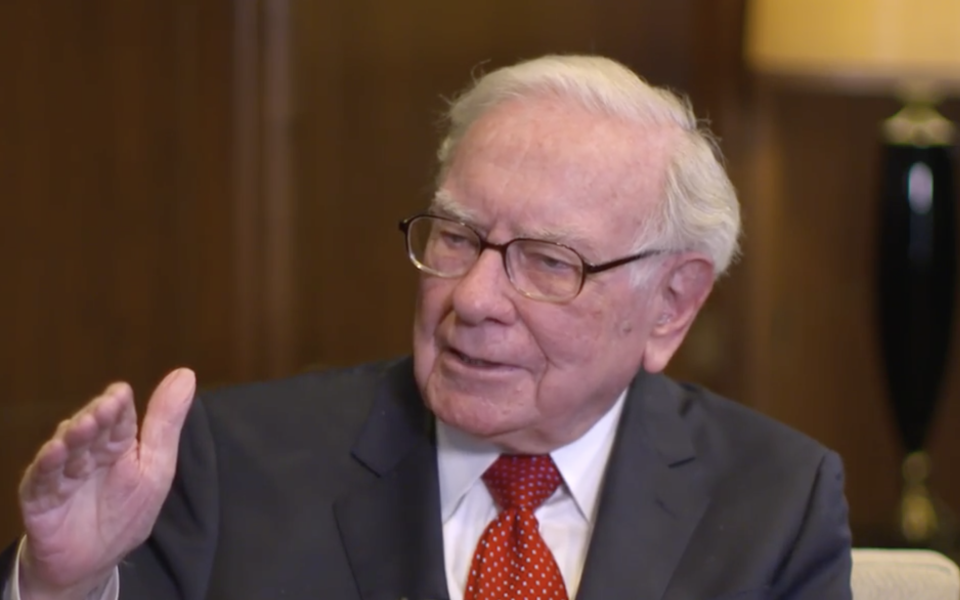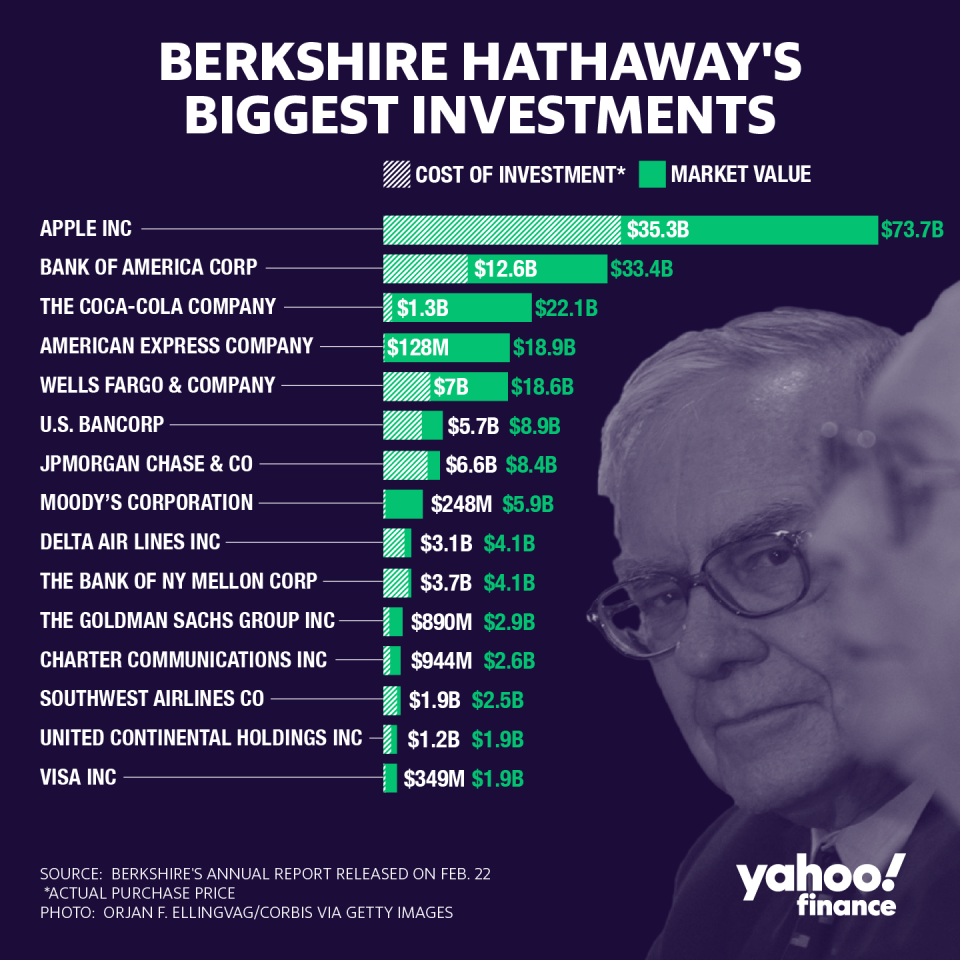Warren Buffett has two ideas for ending inequality
Warren Buffett would be the first to describe himself as a capitalist. And yet he has noted many times over the years that market forces have their limitations, and that the government plays a role particularly in addressing inequities that are created by our economy.
I sat down with Buffett at Berkshire Hathaway (BRK-A, BRK-B) headquarters in Omaha, Nebraska on March 10, just as the coronavirus was beginning to spread and become a serious issue in the United States. We mostly spoke about Berkshire, the markets and the economy. But in this section of the interview we touched on this matter of inequality too.
Buffett has noted before that there is class warfare out there and that “his class was winning.” He elaborated on that point, offering the earned income tax credit — a refundable tax credit for low- to moderate-income working individuals and couples, particularly those with children — as a solution. He also proposed a second idea for ending wealth inequality: higher taxes on the very wealthy.
Read more: Warren Buffett: Lessons from a legendary investor

“There's no question that capitalism, as it gets more advanced, will widen the gap between the people that have market skills, whatever that market demands, and others, unless government does something in between [such as] the Earned Income Tax Credit,” Buffett told me. “And I think that's a proper function.”
How did the gap widen, I was curious?
“If you go back to 1800 and 80% of the people were farmers, and you were the best farmer in Omaha and I was the worst, the difference in our value might be two to one,” he says. “You might be worth twice as much if we're out there picking corn, or whatever we might be doing or planting.”

But now the gap between the best and ordinary has widened tremendously.
“If you're in the top 1/10 of 1% in basketball ability, or football ability, or baseball ability, you aren't worth anything,” Buffett says by way of example. “If you're in the top 100th of 1%, now you're worth millions. Sports is an easy example, because we all like to watch them. We don't want to watch a bunch of guys like you and me play basketball. So that's where the money is. But that didn't exist 200 years ago.
“And so you get this pushing of extreme rewards to people who are very, very good at something the market demands. And people demand entertainment. They demand people apparently that arbitrage securities. There's certain specialties.”
An earned income tax credit for those in the bottom
Is there any intent here?
“It isn't some diabolical plot, or anything,” Buffett said. “And that isn't because a bunch of people are sitting in a room deciding we're going to figure out how to take it away from the poor, or anything like that. It's because of the market system. We want the market system to keep functioning that way, but we don't want people left behind in a society where you've got $60,000 plus of GDP per capita.”
How bad is the divide?
“People on the lower half have been falling behind the gains overall achieved by the country,” Buffett told me. “They aren't worse off than they were 20 years ago. They're somewhat better off because of things like an iPhone. I mean, that's something that's terribly useful. Everybody gets the benefit of [Internet] search, you know, for nothing, basically. But that's the ultimate tension. How do you keep a system that produces incredible benefits for everybody?”
But then how do we address that?
“We address it through things like the Earned Income Tax Credit,” he explained. “We address it so that anybody that works 40 hours a week, and has a couple of kids, that they don't need a second job in the family. They can have a decent life.”
Does that mean increasing the minimum wage?
“It means increasing the Earned Income Tax Credit, because I think that's a better system,” he added. “What they need is more money in their pocket. Now, you can do more money in the pocket through a minimum wage, but you don't have as many people working. You need something so they have money in their pocket.”
Higher taxes on those with peculiar talents
And then Buffett voiced support for a strategy for filling the wealth gap that makes some of his fellow billionaires unhappy.
“In my view, it requires higher taxes on people who were born into this world with peculiar talents that [make them] marvelously [wealthy today, but] 200 years ago, they would have been out there picking corn with me,” he said.
“This country has the productive capacity to let people like me live extraordinarily well — or sports stars, or entertainment stars, all kinds of good managers — and still make sure that nobody is really left [behind],” he added. “So that two people have to work two jobs, and you're wondering how you're going to feed your kids. $7.50 an hour doesn't do it, and $10 an hour doesn't do it, but we can do it. We have the resources to do it.”
Now, six weeks after this interview, it’s clear that Americans on the lower strata of our economy will need more help than ever.
-
Andy Serwer is editor-in-chief of Yahoo Finance. Follow him on Twitter: @serwer.
Read more:
Warren Buffett on negative rates and 'the most important question in the world'
What Warren Buffett's doctors just told him about his health
Warren Buffett reacts to the stock market rout, oil crash amid the coronavirus outbreak
Mike Piazza: Warren Buffett would be a great baseball manager
Find live stock market quotes and the latest business and finance news
For tutorials and information on investing and trading stocks, check out Cashay
Follow Yahoo Finance on Twitter, Facebook, Instagram, Flipboard, LinkedIn, and reddit.





